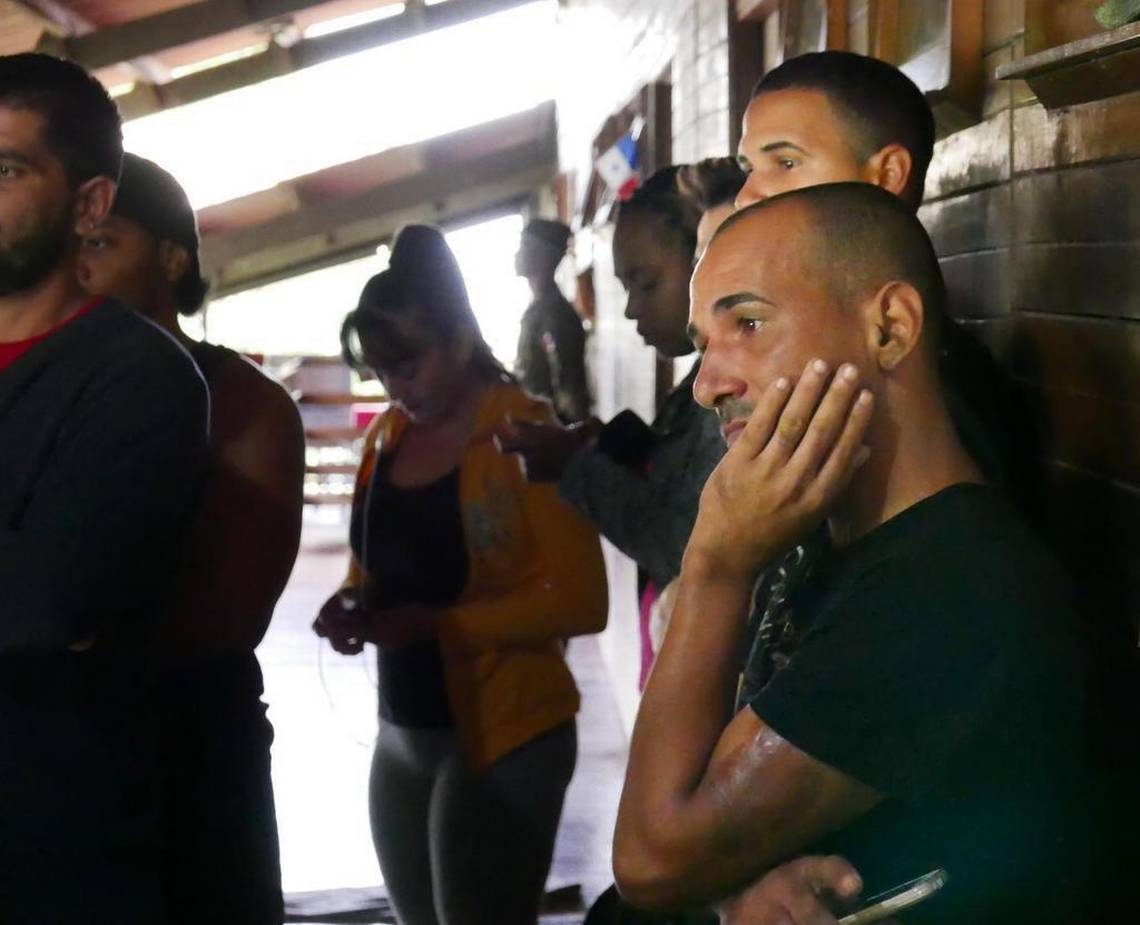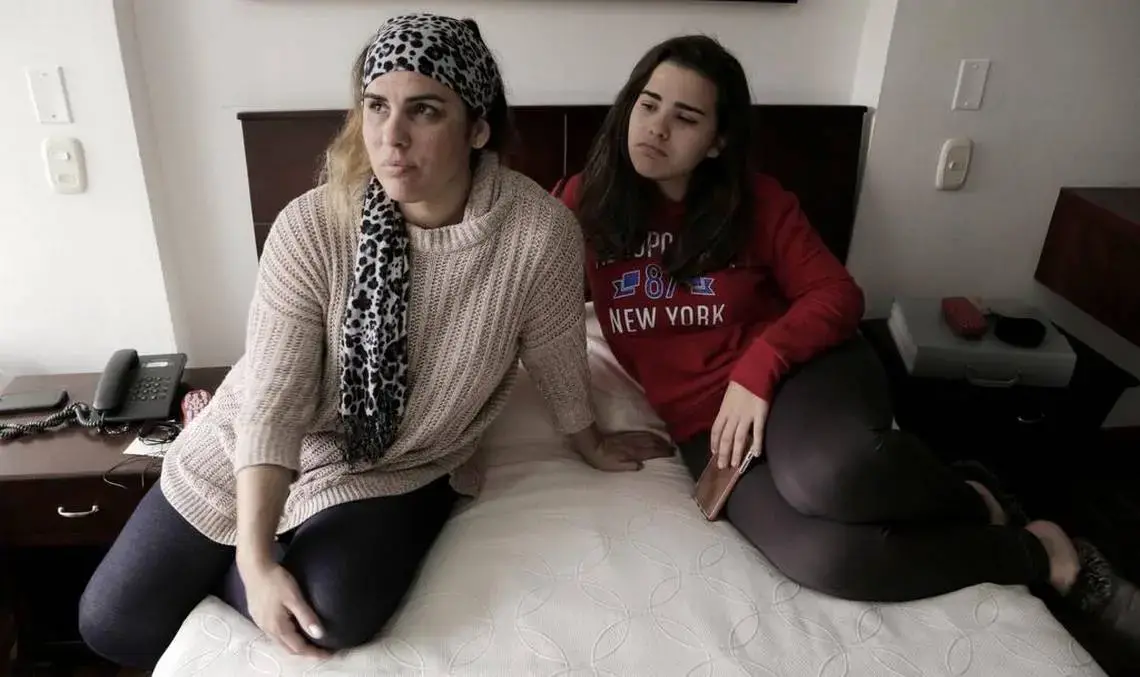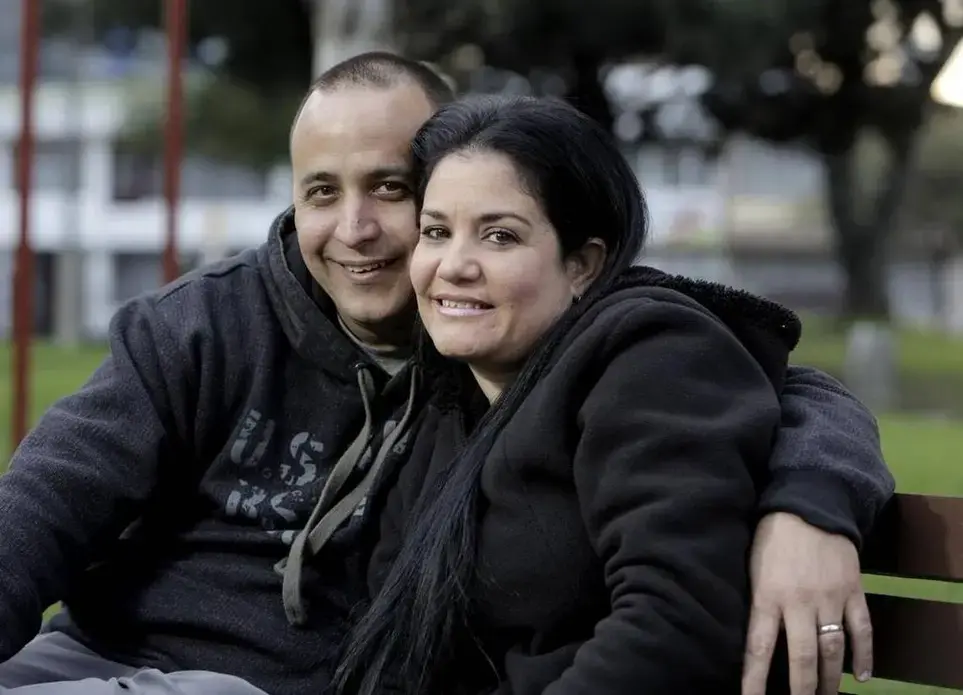BOGOTA, Colombia–A phone call interrupted Maydelin Alfonso Vázquez's monologue in the lobby of the Montecarlo Hotel, about six blocks from the U.S. embassy. Some of the Cubans staying there while they waited for U.S. visas listened to her litany of difficulties.
“Why am I screaming? It's because I can't do this any more. I am going crazy,” Alfonso said as she began to sob. She “moved heaven and earth,” just to obtain a Colombian visa but now had two days left on that visa and had yet to complete the U.S. process required to join her daughter in Miami. They were separated eight years ago.
“This has all been a nightmare, from the time they told me in Cuba that I had to apply for the visa in Colombia until I got here,” Alfonso said.
The lack of information about the U.S. visa application process, the costly process and the hurdles of having to travel to a third country have turned the process of reunification for some Cuban families even more difficult.
After announcing that more than two dozen U.S. diplomats in Havana had been targeted by health attacks, the U.S. State Department ordered the evacuation of all non-essential personnel at the embassy and suspended the visa application process. It later announced that immigration visa applications would be processed at the U.S. Embassy in Bogota.
“After the U.S. announcement everyone rushed to the Colombian Embassy in Havana. There was no organization at all,” said Alonso. The resident of Santa Clara in central Cuba said she had to make five trip to Havana to apply for her Colombian visa, which she obtained only three days before she traveled to Bogota.
“What we went through was very tough. More than 300 people withstood an intense downpour in front of the Colombian Embassy in Havana, with no place to take cover,” she recalled. “One woman who had an umbrella protected my papers and I did not lose everything.”
To obtain Colombian visas, Cubans on the island must submit a summons from the U.S. National Visa Center for an interview in Bogota. They also need passport-size photos, a photocopy of the main page of their passport, a roundtrip air ticket that covers 10 days before and 10 days after the interview. Colombia also requires evidence of at least $2,000 in a bank account or a letter of guarantee notarized by a Colombian consulate where the guarantor lives.
By the end of January, the Colombian Embassy in Havana had handed out more than 1,100 visas to Cubans, according to the South American country's Foreign Ministry. About 900 of the visas went to Cubans heading to the U.S. Embassy in Bogota.
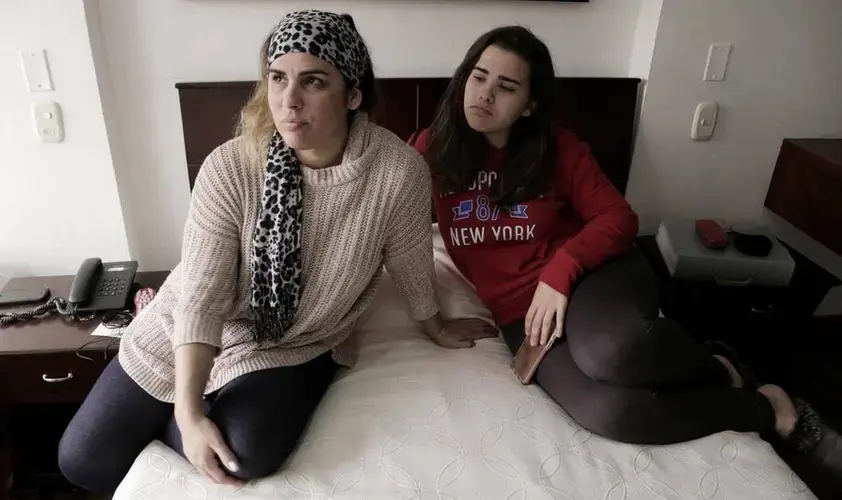
“The day I heard that they had canceled the visa processing at the U.S. Embassy in Cuba I went crazy because I thought Camila would stay over there,” said Lisset López Rodríguez, 38, a singer who lives in Miami and was trying to reunite with her daughter Camila after four years apart.
Like the majority of Cubans, López learned about the U.S. decision to process visas in Bogota through the news media and had never planned to visit Colombia. “I went to the Colombian consulate in Miami and they didn't want to help me. I had to go several days, and after a lot of paperwork they approved my tourist visa to join my daughter,” she said.
She said the process needed more information and lacked transparency. “No one advises you on what you have to do or helps you to make the process easier. And I'm not even talking about the costs,” she said.
“They give you the date of the interview about one month ahead. You have to pay your airfare to Colombia and the airfare for your relative—even the return to Cuba, which you lose if you get the U.S. visa,” López said. “On top of that you have to pay in advance for 20 days of hotel in Bogota, plus the meals and the taxis.”
The Cubans must also pay $220 for a medical physical required for the U.S. visa.
López said she and her daughter spent more than $6,000 on the process.
“I never expected to be in Colombia or spend that kind of money, but a mother's love will can do anything. At least now I will be with my daughter,” she said between tears.
López complained that the U.S. decision to process the visas in Colombia has been unjust for those who live on the island. She does not question the State Department's reasons, but compares the current state of bilateral relations to the Cold War.
“Before, there was no embassy, but the United States had a consular section to help people leave for freedom,” she said. “But now, not even that.”
The State Department said the embassy in Bogota was selected to process the Cuban visa applications because it is one of the largest in Latin America. It is located in the middle class Quinta Paredes neighborhood of the Colombian capital.
“There are a lot of Cubans around here,” said Henry Caicedo, who owns a food shop near the embassy. He said the arrival of so many Cubans has helped local businesses. “My shop is full thanks to the Cubans who want good and cheap food,” he added.
The nearby Montecarlo and Ambassador hotels are almost fully booked with Cubans, and the same goes for most of the businesses in the neighborhood.
“This neighborhood has grown thanks to the people who come to do their paperwork at the U.S. Embassy,” said Luis Carlos Mogollón, a former soldier who now drives a taxi. “Just 10 years ago there were only three hotels. Now there are more than one on each block.”
A room in one of the neighborhood hotels goes for $40 to $80, and most of them offer transportation to and from the U.S. Embassy
Some Bogota entrepreneurs have jumped on the situation to create special travel packages, such as the Hotel Santa Cruz's “American Visa Plan for the Cuban Community.” It includes room, transportation and legal advice for 10 days for $820.
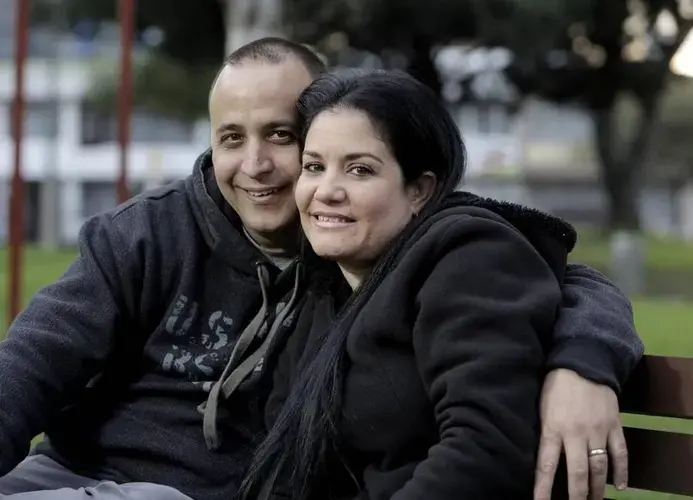
“The service here has been good,” said Yackmar Domínguez Santos, 38, about the hotel service.
“Having to travel to Bogota for the paperwork so that my family can come to Miami has been difficult,” he added. “All the money I had saved to help them settle in Miami was spent on airfare and the stay in Colombia.”
His wife, Malena Fernández Gutiérrez, who was making her first trip outside Cuba, said she was almost overwhelmed. “It's been four years of pain, of sadness, of anguish and separation. When I heard that I would have to postpone the interview because it could not be done in Havana, my world fell apart,” she said.
Fernández said the price of the political struggles between the United States and Cuba is again being paid by the families on both sides of the Florida Straits.
“If I have to go to the end of the world to be with the people I love, I’ll do it,” she said. “No amount of money is too much for what family is worth.”



